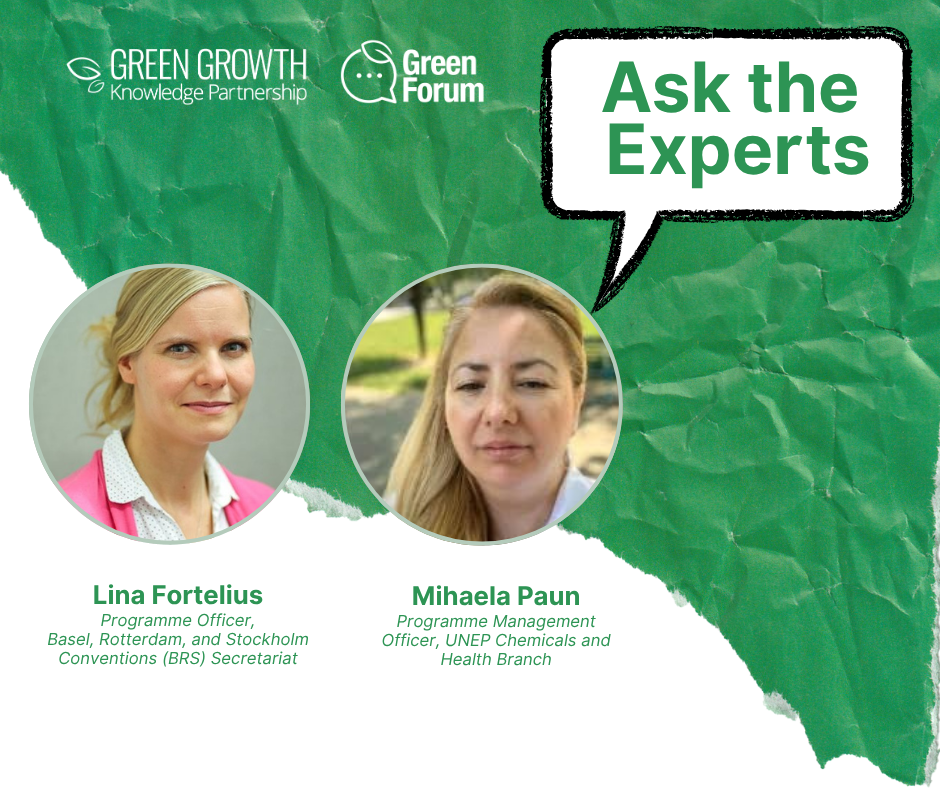Persistent organic pollutants (POPs) pose a significant threat to both human health and the environment. However, the risks and impacts of POPs exposure are not evenly distributed across populations. Socially constructed gender roles, responsibilities, and power dynamics can create and exacerbate vulnerabilities, leading to disparities in both exposure and health outcomes.
While POPs present risks to all individuals, gender-specific vulnerabilities arise from a complex interplay of biological, social, and economic factors. Women, for instance, may experience greater exposure to certain POPs due to their traditional roles in household activities, such as cooking or cleaning, or through occupational exposure in sectors like textile manufacturing or agriculture. Physiological differences, including reproductive functions, also contribute to varied health impacts. Therefore, understanding these gendered dimensions is crucial for developing effective and equitable interventions.
This blog post explores the critical need for integrating gender considerations into POPs management strategies, particularly within the framework of National Implementation Plans (NIPs) under the Stockholm Convention. It draws on insights shared during the Global Green Growth Knowledge Partnership (GGKP) webinar Global NIP Update: Integrating Gender Perspectives in National Implementation Plans held on 21 June 2023, featuring contributions from BRS Secretariat, gender experts and Parties.
Gender Dimension through the Lens of the Stockholm Convention
Ms. Susan Wingfield, Gender Focal Point at the BRS Secretariat, UNEP
International mandates require UN member states to integrate gender considerations into environmental management, making gender equality an integral part of implementing the Basel, Rotterdam, and Stockholm (BRS) conventions. The BRS Gender Action Plan (BRS-GAP) offers concrete guidance, including education about chemical risks for both men and women, support for multi-stakeholder engagement with women's participation, and the collection of gender-disaggregated data and research on the intersection of women and chemicals.
Despite these advancements, a significant gap remains between policy and practice. While sex-disaggregated data is frequently included in NIPs (70%), the meaningful engagement of women's organisations or ministries in the development (16%) and implementation (11%) of these plans remains low. Budget allocations for gender-focused activities are also often lacking (11%). Furthermore, women are too often portrayed as vulnerable recipients of interventions rather than active agents of change.
To bridge this gap, a more robust and comprehensive approach to gender integration is required. It begins with a thorough gender analysis to understand how hazardous chemicals affect women, men, girls, and boys differently. This includes identifying and documenting the specific risks and vulnerabilities associated with exposure to POPs and other harmful substances. Gender considerations must be embedded across every aspect of the NIPs — from monitoring and assessment to risk reduction, chemical substitution, waste management, capacity building, and information sharing. Promoting women’s meaningful participation and leadership in decision-making processes is key, alongside strengthening data collection systems to capture gender-disaggregated information on exposure, health impacts, and involvement in chemical management. Raising awareness through training and capacity-building programmes ensures that policymakers, stakeholders, and communities understand and address these gender dimensions effectively. To create truly inclusive and effective plans, gender must be considered from the initial stages through to the evaluation phase.
To learn more about the Global NIP Update project, visit Global NIP Update | Green Policy Platform
For a deeper dive into this webinar, you can access the full recordings and materials here - https://www.greenpolicyplatform.org/webinar/global-nip-update-integrating-gender-perspectives-national-implementation-plans
Authors:
 |
Ms. Susan Wingfield, Gender Focal Point at the BRS Secretariat (UNEP) |
 |
Ms. Soomin Bae, Knowledge Management Support Consultant (GGKP, GGGI)
|



